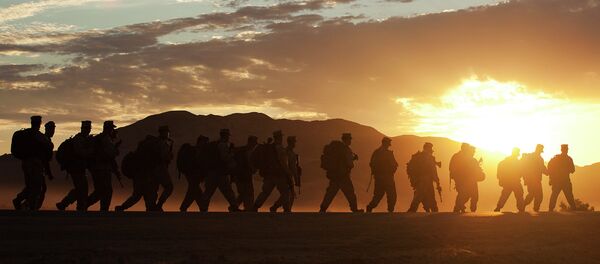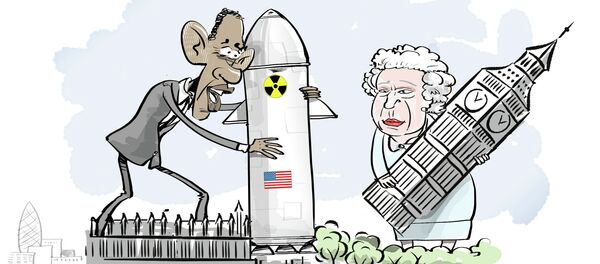Gelis-Filho explains that "obviously, the Islamic State just doesn't fear America. And why should they? After decapitating Americans, after watching on the field how Iraqi troops, supposedly well-trained and certainly well-equipped by the US military, ran away from the fight, after capturing American military equipment in the field and God knows what other facts which only those on the field ever knew about, the terrorist horde can afford to threaten a nuclear attack against what is, at least on paper, the most powerful country in the world."
Geopolitical and Socio-Economic Chips in the Foundation
"After crying wolf so many times for a recovery that never comes, after the visible disintegration of the social fabric with ever-more frequent riots over police brutality and ever-increasing inequality, perhaps it's time to pose the forbidden question: Should we prepare for a Soviet-like collapse of the US?" According to Gelis-Fliho, the answer, "for a number of reasons, is yes." The analyst makes clear that this "doesn't mean that such disintegration is imminent or even probable." Nonetheless, in his view, the possibility of the unthinkable happening means that policy experts around the world must be prepared for such a scenario.
The Material Basis of US Statehood
Gelis-Fliho explains that "in order to understand why such fragmentation is possible, even if remotely so, it is necessary to understand the reasons keeping the country together. The United States was not built along ethnic lines, something which helps polities to survive their times of troubles. Its border with Canada is almost entirely artificial, so geographical constraints were not at play. In fact, the United States is an entirely artificial polity, and not one that has emerged more or less spontaneously out of historical movements. It is the result of a carefully crafted and successfully executed plan for expansion, based on the ideology of the Manifest Destiny."
"The American polity has always been sustained by a single and very powerful unifying factor: success. The Confederate insurgency in the nineteenth century showed that even in its past the country was already fissile. But the astounding economic, political and cultural success of the United States created a success-fed beast, and the beast is now hungry. Despite all the rhetoric about the ideals of freedom, what has driven and still drives most immigrants to the US is one single desire: material progress. What can possibly keep the country united now that such progress can no longer be taken for granted? As the blanket [of material wealth] begins to prove itself to be too short, local elites in the richer states will have incentives not to bankroll the poorer states. The cult of collective and individual success –the all-American secular religion responsible for America's long and rich history, will then, ironically, become the fuel for its possible disintegration."
Global Consequences
"Now imagine what would happen in the United States, a country where the estimated number of firearms in civilian hands is over 200 million. It is unlikely that such a hypothetical fragmentation would occur along state lines. While some American states have a long history and enough wealth to take care of themselves, on the other, many others were carved out of territories along more or less arbitrary lines, the long straight lines defining the borders of many Western states serving as evidence of this fact. Many of these states are landlocked, and dependent on other states to export whatever they produce. Moreover, many counties in states bordering Mexico have massive Mexican and Mexican-American populations who would naturally seek protection from the US's southern neighbor in the event of collapse."
According to Gelis-Fliho, another reason to dread and be wary of a hypothetical collapse "is the US empire of military bases around the world, many of them better armed and equipped than local governments. Who would administer them and how? Here the lessons from the collapse of the Soviet Union are not a source for optimism."
Finally, Gelis-Fliho comes to the greatest problem facing the world following possible collapse: the American nuclear arsenal. In his view, "in contrast to what occurred in the Soviet Union, where Moscow had enough control over Soviet strategic forces to keep them under its control during the collapse, nothing of the kind is self-evidently possible in the case of the US."
Ultimately, Professor Gelis-Fliho believes that there are enough reasons "for sensible policy planners in the rising world powers to prepare scenarios for dealing with such an improbable, but by no means impossible, Soviet-style collapse of the United States."






